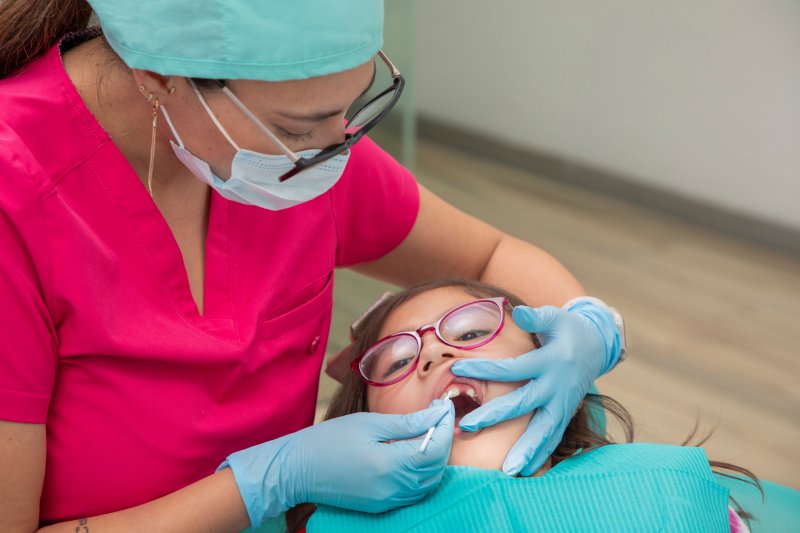
There is much debate among dentists about the use of fluoride on young, developing teeth. While some believe it can be harmful, resulting in fluorosis, others find that safe amounts can better protect vulnerable smiles from cavities. Recently, researchers found that exposure to fluoridated water does not negatively affect children’s behavioral or developmental function. But is this natural mineral actually safe? Keep reading to find out.
What is Fluoride?
Fluoride is a natural mineral found in public and private water supplies, various foods, toothpaste, etc. It contains properties that allow it to fight dental decay while also strengthening existing tooth enamel. This can be helpful for young patients whose smiles are still growing and who still need time to refine their brushing techniques.
How Safe is It for Children?
The use of fluoride is commonly recommended for those who are at risk of developing cavities. This is why many pediatric dentists suggest it for children. Their diets, novice dental hygiene habits, and changing oral anatomy make their teeth prime targets for harmful bacteria, plaque, and tartar.
Unfortunately, some researchers and dental professionals believe it is unsafe for patients, especially those who are young, to receive this type of treatment. The biggest concern is fluorosis – a condition that can form before the age of 8 and is the result of a child being exposed to too much fluoride before their teeth erupt. The effects are more cosmetic than health-related, leaving small white spots on the enamel surface.
However, some believe there to be more serious consequences – those that impact a child’s behavioral and developmental health. Fortunately, much research has been and continues to be done to negate this issue.
In fact, a study performed by Australian researchers at the University of Queensland found that children who are exposed to fluoridated water did not exhibit any problems as it relates to their emotional, behavioral, or developmental functioning.
Why Do Dentists Use Silver Diamine Fluoride?
While children may be exposed to fluoride through their drinking water, toothpaste, or the foods they eat, some may still not be getting enough to combat cavities. In these instances, a pediatric dentist may recommend a different type of treatment – silver diamine fluoride (SDF).
Similar to traditional treatment, the difference is that SDF can be used to treat existing cavities, effectively arresting (stopping) decay in its tracks. It can also minimize tooth sensitivity as well as strengthen (remineralize) enamel affected by dental caries.
It is a worthwhile solution for any patient who may be fearful of receiving a dental filling. As a safe and effective alternative, it can make treating cavities in children a stress-free experience.
About the Author
Dr. Marie Tremblay’s 20+ years of experience in pediatric dentistry makes her a family favorite at Treehouse Pediatric Dentistry. Delivering care to patients at our office for more than 15 years, she uses her education from the University of Montreal dental school and professional experience to help children develop healthy smiles for life. When it comes to preventing and/or treating cavities, she and our team can provide silver diamine fluoride to not only arrest the decay but better protect the affected tooth. If you have a child who struggles with cavity-stricken teeth, visit our website or call (413) 779-3136.
